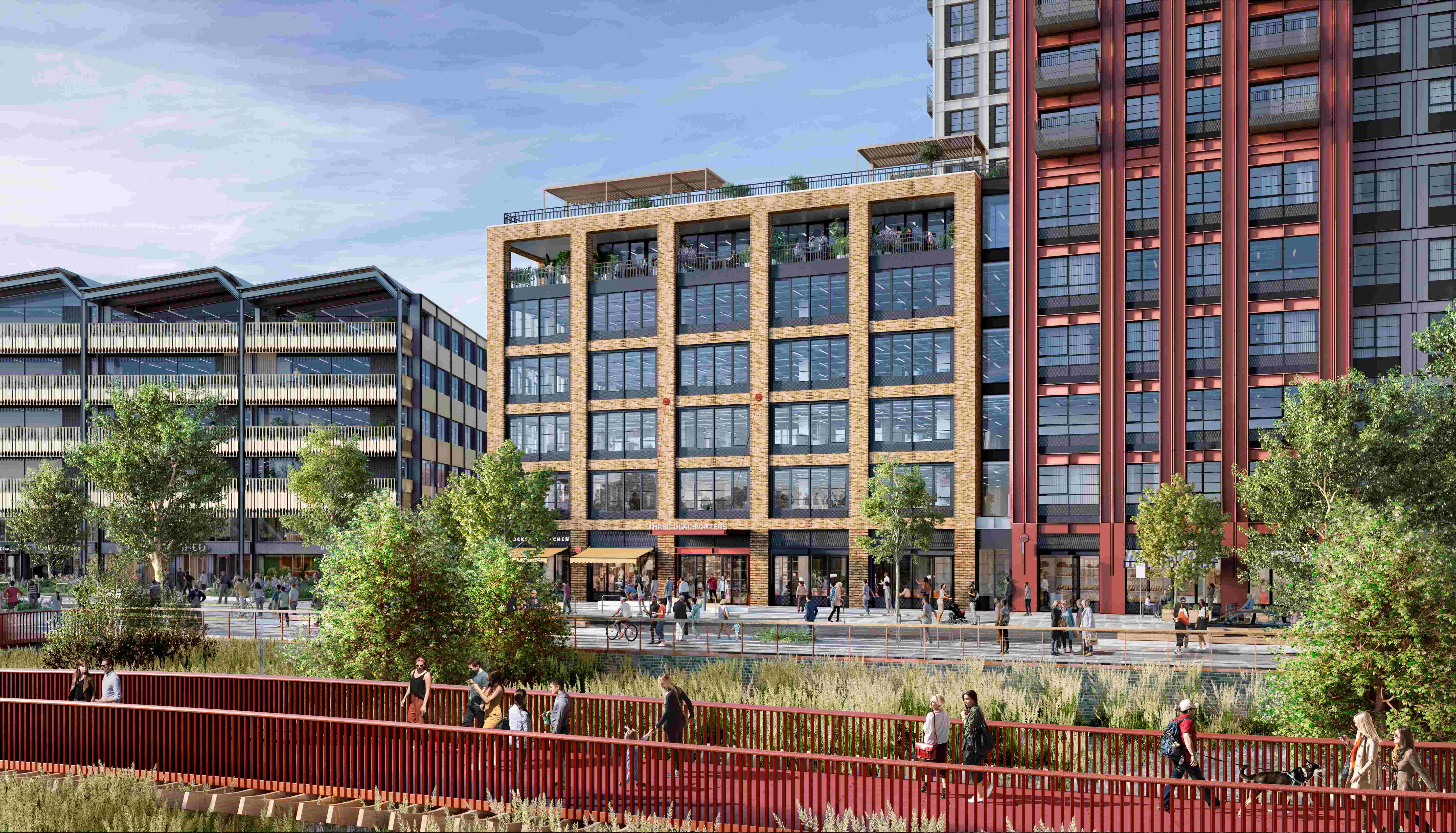The report, commissioned by three leading UK developers, highlights positive attitudes towards urban development as British Land, Landsec and Berkeley Group encourage the government to embrace urban development and densification or risk missing its 1.5 million homes mission.
New research from leading UK community engagement platform Commonplace investigates the public’s attitude to brownfield development across four major urban areas to identify what people want to see from development in their local areas.
The results were clear: far from being anti-development, urban communities are overwhelmingly made up of ‘YIMBYs’ (‘yes in my back yard’). 60% of those polled in Cambridge, Camden, Manchester and Newham had strongly negative views of currently underdeveloped brownfield sites, viewing them as ugly, dirty and unsafe. 73% saw the underutilisation of these sites as a wasted opportunity that needs to be harnessed - for example, to deliver more affordable housing, public spaces and green places.
Almost 80% believe that brownfield regeneration would positively impact their local areas, with 75% of respondents wanting brownfield regeneration prioritised over other types of development. The research also shows that urban communities are open to supporting taller or denser development, providing it unlocks greater benefits for the community.
It is clear that broadening local engagement is key to unlocking community support when it comes to planning, making urban YIMBYS a crucial cohort in turbocharging delivery.
To achieve this, British Land, Landsec and Berkeley Group have called on the Government to:
Prioritise brownfield development as the most popular and sustainable route to quicker delivery while improving the public’s perception of the places in which they live
Reduce time and cost barriers by reducing policy layering that adds complexity and duplication, allowing for greater flexibility in urban design to overcome bespoke challenges, providing more grant funding to enable infrastructure delivery and unlock sites, and creating investment incentives by recognising costs when incurred rather than when homes are sold
Ensure regeneration benefits are felt and seen locally by using locally negotiated S106 agreements to agree benefits on large brownfield projects rather than the Community Infrastructure Levy
Promote the delivery of affordable housing by supporting the financial capacity of housing associations, increasing the level and efficiency of grant funding and allowing flexibility to provide a range of affordable housing tenures in response to local needs
Enable greater public participation in the planning and development process by promoting a more open dialogue between developers, councils and communities about the potential benefits development and densification can deliver, linking brownfield passports to a comprehensive community participation programme and reviewing the statutory consultation process.
Recognising that private sector developers also have an important responsibility to local communities across the UK, British Land, Landsec and Berkeley have unveiled three new commitments which they will be collectively adopting ahead of any policy change:
Reviewing their own urban brownfield regeneration projects to ensure that they are optimised and that the benefits urban communities want to see are delivered.
Engaging proactively with local communities to involve them in shaping the opportunities of brownfield development from the outset, as well as during construction and once built.
Continuing to challenge themselves and explore new ideas to ensure engagement is inclusive, representative and equitable.
Simon Carter, Chief Executive Officer at British Land, said: “This new research – which focused on surveying a true snapshot of those who live, rent and work in urban areas - demonstrates that urban communities are overwhelmingly YIMBY when they are involved in the process and the benefits of development are clearly understood. Contrary to public perception, it is clear that this group want to see brownfield urban regeneration that delivers for the local community, creating a unique opportunity for new pragmatic policies that leverage the support of this critical demographic to unlock delivery and growth.”
Mark Allan, Chief Executive Officer at Landsec said: “The Government should feel reassured that their ambitious housing targets can be delivered with the consent of local communities – particularly in the urban areas that made up our study. Our research demonstrates that the public is sophisticated not only in its understanding of what constitutes good development but also the benefits local communities should expect and enjoy from development. They are ready to embrace the opportunities of brownfield urban regeneration. It’s now up to policy makers and the property sector to maximise the potential and delivery of these sites across the country.”
Rob Perrins, Chief Executive of Berkeley Group, said: “Our Government clearly recognises that regenerating urban land is the most sustainable way to build new homes and drive growth. This research demonstrates that urban communities also support brownfield development and want to be involved in unlocking the positive potential of these sites. This should be hugely encouraging for ministers as they focus on lifting the regulatory barriers to regeneration and getting more homes built on underused sites.”


